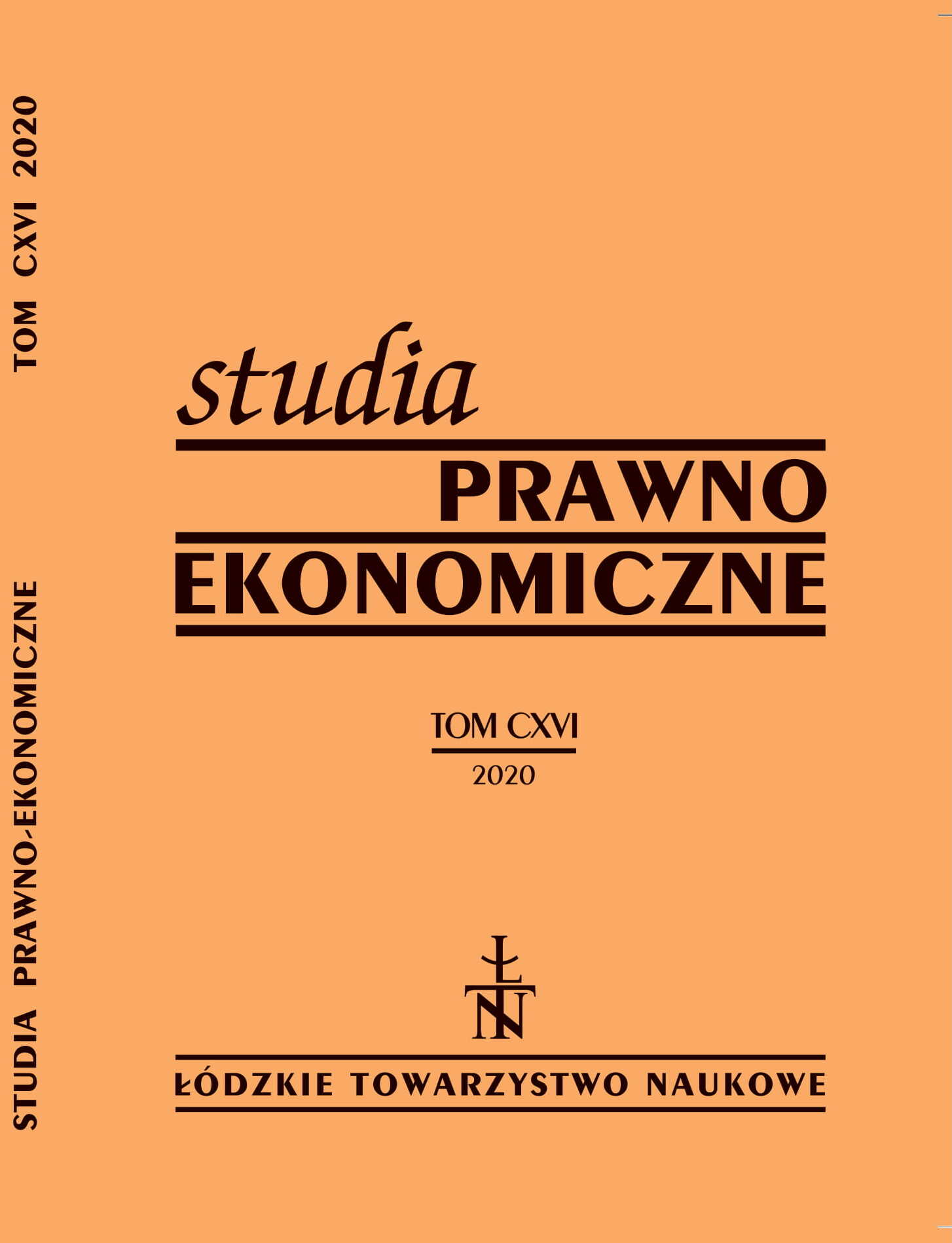Financial consulting in the face of the need to protect intellectual property in the FinTech area
DOI:
https://doi.org/10.26485/SPE/2020/116/12Keywords:
financial consulting, intellectual property, FinTech, copyrightAbstract
Background: The subject of research described in the article was selected issues related to the protection of intellectual property and the functioning of financial consulting in the broadly understood area of fin tech. Since we are talking about a complex and multi-faceted phenomenon, it is not easy to identify all possible problems that arise at the interface of financial services and issues related to intellectual property infringements. This increases the importance and responsibility of consulting companies, which should indicate to entrepreneurs the most effective and individually tailored methods of protection.
Research purpose: The basic goal in this case was to investigate to what extent the currently active advisors are aware of the issues discussed, and have the appropriate insight and knowledge to formulate effective diagnoses.
Methods: The method used in the study was a computer-assisted CATI telephone survey, which was conducted among representatives of leading financial consulting companies operating in Poland. Computer telephone conversation (CATI) was in this case the optimal technique, because it allowed to conduct the interview in accordance with the script provided by the application. This kind of structured system for collecting microdata significantly accelerates the process of obtaining and editing the collected information. It also allows the researcher to educate and equip respondents with additional knowledge about the importance of current and accurate data. The software is able to customize the implementation of the questionnaire based on the answers provided, as well as information about a single participant.
Conclusions: The effect of the study allowed the defining of the competences of modern advisors and to assess their awareness of the need to take into account the protection of intellectual property as part of the services offered. 72 representatives of leading financial advisory companies were surveyed. As a result, data were obtained to conclude that in the area of financial consulting, often also using fin tech tools, the level of awareness related to the need to protect intellectual property is not only high, but also supported by reliably substantive preparation.
Downloads
References
An overview of intellectual property protection system in Poland; https://www.paih.gov.pl/polish_law/ intellectual_property_rights; stan na 14.08.2019 r.
Barta J., Markiewicz R., Komentarz do ustawy o ochronie baz danych, Wolters Kluwer, Kraków 2002.
Barta J., Markiewicz R., Prawo autorskie i prawa pokrewne, Wolters Kluwer, Kraków 2004.
Dyrektywa 2002/65/WE Parlamentu Europejskiego i Rady z dnia 23 września 2002 r. dotycząca sprzedaży konsumentom usług finansowych na odległość oraz zmieniająca dyrektywę Rady 90/619/EWG oraz dyrektywy 97/7/WE i 98/27/WE (Dz. Urz. WE 2002 L 271/16).
Dyrektywa 95/36/WE o ochronie osób w związku z przetwarzaniem danych osobowych oraz o swobodnym obiegu danych; Dyrektywa 97/66/WE w sprawie przetwarzania danych osobowych i ochrony prywatności w sektorze komunikacji; Dyrektywa 2002/58/WE w sprawie przetwarzania danych osobowych oraz ochrony prywatności w sektorze komunikacji elektronicznej (dyrektywa o ochronie prywatności i komunikacji elektronicznej) (Dz. Urz. WE 2002 L 201/31).
Fintech – understanding the role of patents; http://cipher.ai/wp-content/uploads/Fintech-understanding-the-role-of-patnets.pdf; stan na 14.08.2019 r.
Intellectual property rights and fintech: What financial institutions need to know, Ashurst 2016; https://www.ashurst.com/en/news-and-insights/legal-updates/intellectual-property-rights-and-fintech-what-financial-institutions-need-to-know/; stan na 14.08.2019 r.
Long S., Building respect for IP: UK educations awareness raising initiatives. World Intellectual Property Organization advisory Committee on Enforcement WIPO/ACE/10/14, (2015); http:// www.wipo.int/edocs/mdocs/mdocs/en/wipo_ace_10/wipo_ace_10_14.pdf; stan na 14.08.2019 r.
Matlak A., Prawo autorskie w społeczeństwie informacyjnym, Kantor Wydawniczy Zakamycze, Kraków 2004.
Methodologies compared: CATI, CAWI and CAPI, pros and cons of data collection via telephone, web and in field; https://www.linkedin.com/pulse/methodologies-compared-advantages-disadvantages-data-via-mancini; stan na 14.08.2019 r.
Olechowski M., Szeliga A., Iwański W., Paziewska K., FinTech. Law & Practice. Poland Global Practice Guides 2018; https://skslegal.pl/wp-content/uploads/2017/12/015_POLAND-2018. pdf; stan na 14.08.2019 r.
Szpringer W., E-commerce, e-banking, Warszawa 2014.
Wong Ch.L., Chung K.Y., Fintech Innovations: Forging Ahead, SAL Prac 9, September 2018; https://journalsonline.academypublishing.org.sg/Journals/SAL-Practitioner/Fintech/ctl/eFirstSALPDF JournalView/mid/595/ArticleId/1291/Citation/JournalsOnlinePDF; stan na 14.08.2019 r.



